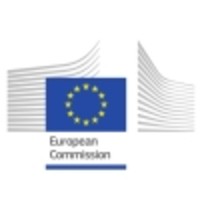Some 250,000 school children in Greece have applied for the Nutrition program (Diatrofi) organised by the Prolepsis Institute.
Since 2012 that it was first launched, the program has provided 11,000,000 free meals on daily basis to some 450 schools and 75,000 children in rural and remote areas of Greece.
Ahena Linou, the head of the non-governmental organization, said on Monday that half the students enrolled at schools in higher-risk areas face food insecurity, with one in six presenting health problems and one in four experiencing emotional health problems, such as fear, sorrow, anger and worry about the future.
According to a survey presented by Prolepsis on October 12, during the 2014-2015 school year 53 percent of the children in the program experienced food insecurity and 21 percent experienced hunger. On 64 percent of the families, only one of the parents had an income, while 15 percent of the families had no income whatsoever. Also, 8.5 percent of students had no health insurance and 7 percent had no electricity for a period of more than a week.
The NGO study noted that children who are hungry show higher rates of absenteeism and dropping out of school, while children from families with food insecurity have an 18 percent rate for frequent absenteeism due to ill health, compared to 8 percent of families with food security. They also show greater difficulty in coping with school work and following lessons, with a long-term impact on their future and that of the country as a whole.
A 2014 report from UNICEF revealed that the largest increase in child poverty has been in Southern European countries -Greece, Italy, Spain, as well as in some other European states that have been hit hard by the economic crisis. The same study found that the children who were most affected were from countries where fiscal adjustments were implemented by the IMF/ECB.
Child poverty in Greece has almost doubled from 23 per cent in 2008 to to 40,5 per cent in 2012 with migrant children particularly vulnerable. The report noted that the average family incomes were at 1998 levels, and 18% of households with children unable to afford a meal with meat, chicken, fish or a vegetable equivalent every second day. Greek families, with children, have lost the equivalent of 14 years of income.
Although reliable data assessing the health impact of austerity on the wider Greek population will take several years to emerge, the Greek National School of Public Health reported a 21 per cent rice in stillbirths between 2008 and 2011. The researchers linked the rise to reduced access to prenatal services and increased unemployment among women and noted that infant mortality also rose by 43 per cent between 2008 and 2010.
A study published by the medical journal The Lancet in February 2014 noted that “although infant and child mortality decreased after 2010, stillbirths remain high. There is an urgent need to strengthen public health measures in order to secure the quality of child and maternal health in Greece in the long term”.
 This publication has been produced within the partnership with Osservatorio Balcani e Caucaso for the European Centre for Press and Media Freedom (ECPMF), co-funded by the European Commission. The contents of this publication are the sole responsibility of IPS Communication Foundation and can in no way be taken to reflect the views of the European Union.
This publication has been produced within the partnership with Osservatorio Balcani e Caucaso for the European Centre for Press and Media Freedom (ECPMF), co-funded by the European Commission. The contents of this publication are the sole responsibility of IPS Communication Foundation and can in no way be taken to reflect the views of the European Union.